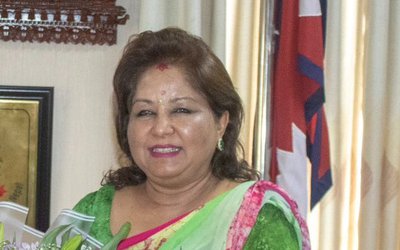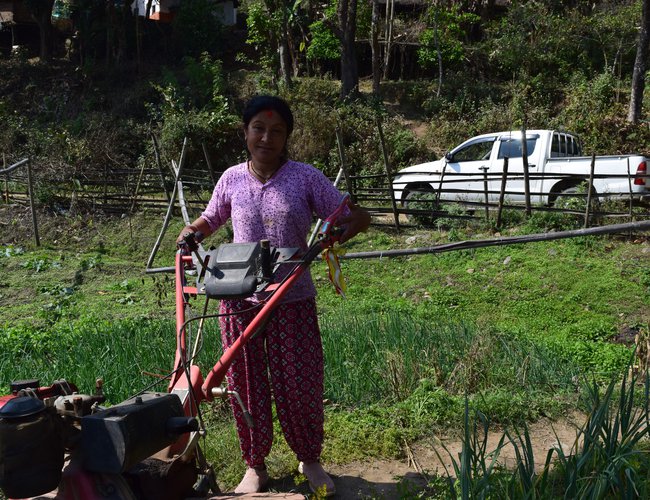
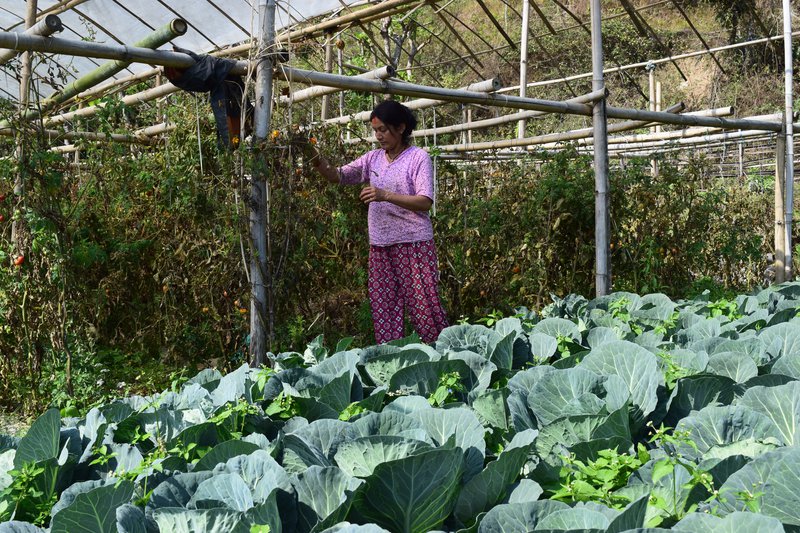
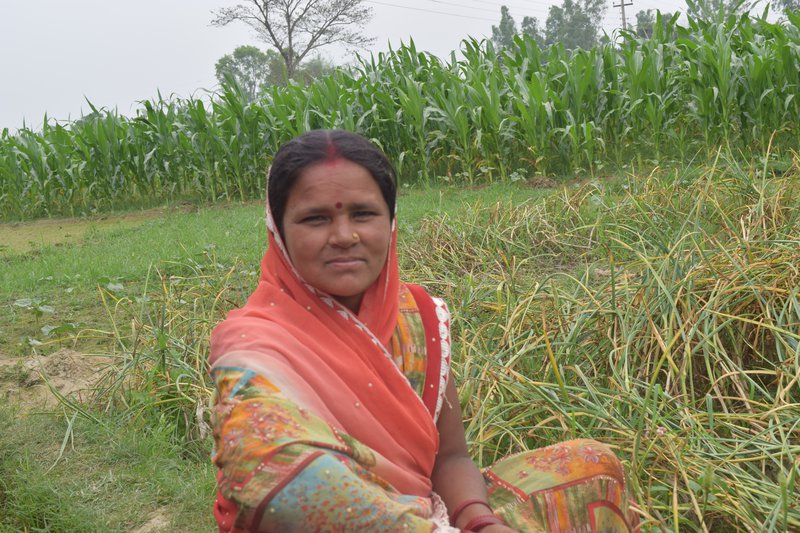
Rita Devi Subedi, 41, lives in Paiyapani, Bhojpur Municipality ward 12, Koshi Province. On the contrary, Minita Kumari Yadav, aged 32, resides in Dharmapur, Subarna Rural Municipality Ward 6, Bara District, Madhesh Province. These two individuals inhabit different ecological zones and encounter diverse environments. Nevertheless, despite their geographical and socio-cultural distinctions, they share a common occupation.
Both Subedi and Yadav have shifted from substance-based farming to commercial farming to enhance their annual income and elevate themselves from poverty. This transition was facilitated by the Samriddhi Project, which they engaged in following the completion of the VST graduation course.
Subedi, a single mother with one child, lives in the secluded hilly region of Bhojpur, while Yadav, the wife of a migrant worker, resides in the remote southern area of Bara District, merely one kilometer away from the Indian border. Despite the differences in their ecological settings, these two individuals exhibit similarities in their lifestyles. Like Khadka and Yadav, numerous other women have demonstrated that advancements in agriculture create job opportunities and income for rural communities through farming, processing, and marketing endeavors.
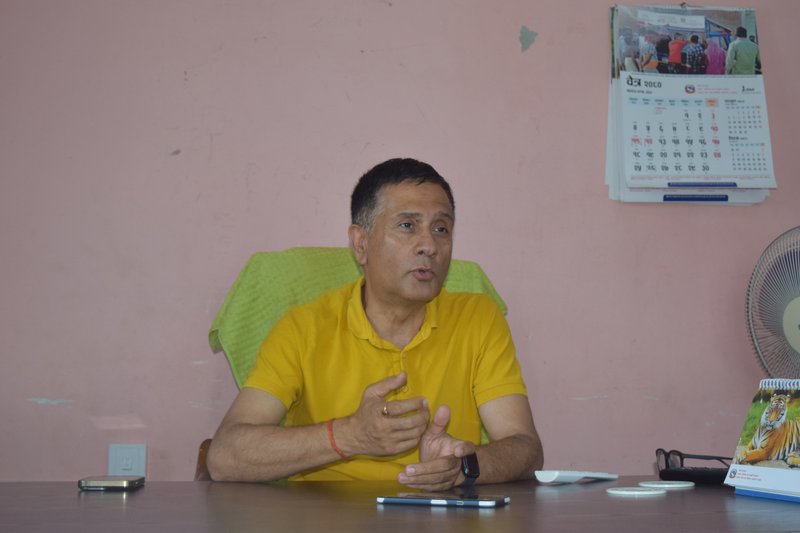
Samriddhi’s learning involves the understanding that by strengthening market linkages, developing value chains, and promoting new technology, the capacity of women to support poverty alleviation is enhanced, as stated by Sanjeev Kumar Shrestha, an expert in Value Chain & Markets and a National Consultant at the International Fund for Agricultural Development (IFAD).
Shrestha also emphasized that vocational skills, which complement agriculture by providing training in modern farming techniques, agri-processing, and entrepreneurship, play a crucial role in increasing productivity, fostering innovation, and generating income within the agricultural sector.
Khadka and Yadav’s experiences further demonstrate that integrating vocational skills with agriculture, market chain, and finance can lead to sustainable rural development in Nepal and create additional opportunities for local communities.
Yadav’s Experience
During the wheat harvesting season, Yadav takes on a dual role. As wheat is a staple crop, she must divide her time between harvesting wheat and tending to off-season vegetables grown in tunnels and on her small plot of land. With an annual income of approximately Rs. 250,000.00 (US$ 1800), Yadav efficiently manages both responsibilities while being a mother to three daughters and a son.
After attending VST training last year with a group of 20 women, Yadav has acquired skills and knowledge that allow her to use machinery for wheat harvesting, saving time and energy. This training has also connected her to the market chain, where vendors collect the vegetables grown by Yadav and her group in the field.
Yadav stated, "We no longer have to worry about the market or vegetable supply. The vendors visit us regularly to collect our produce and send it to the district headquarters in Kalaiya." Subedi, who previously faced challenges in selling her products, is now also linked to market vendors who collect vegetables from her garden and pay in cash.
By cultivating off-season vegetables on her entire 25-ropani land annually, as well as raising goats, chickens, cows, and buffaloes, Subedi can earn around Rs. 600,000.00 annually. This income is sufficient to cover food expenses, tuition fees for her son's college education, and medical costs for her father.
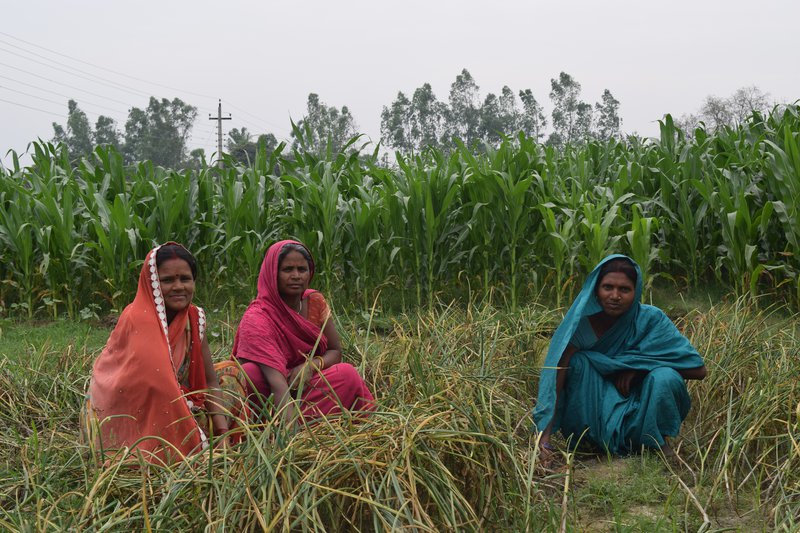
Subedi reported that her production almost doubled following the implementation of changes in the plantation pattern, including maintaining gaps and managing water. By applying fundamental plantation skills, production can be enhanced by nearly double. Subedi, a member of Taja Tarkari Nursery Krishak Samuha, a farmer group with 25 members, now owns two tunnels and a hand tractor for land cultivation.
This has resolved any worries about the market for their goods. Previously, they had to travel to the district headquarters to sell their vegetables and often came back with unsold items. However, now vendors collect their products and distribute them to Kathmandu, Dharan, and Dhankuta. Yadav, who took part in the training, has also observed an almost double increase in annual vegetable production.
They no longer have to be concerned about the market, as they previously encountered difficulties and had to discard vegetables due to the absence of a market. In the past, farmers in Bhojpur Municipality and Dharmapur Tole of Subarna Rural Municipality faced similar issues, such as the lack of collection centers and dependence on individual traders for pricing.
As a result of being excluded from the market chain, women were left with no option but to accept whatever prices were offered to them. Subedi emphasized that most of them had to transport their produce to Bhojpur Bazar themselves and were compelled to sell at the given price.
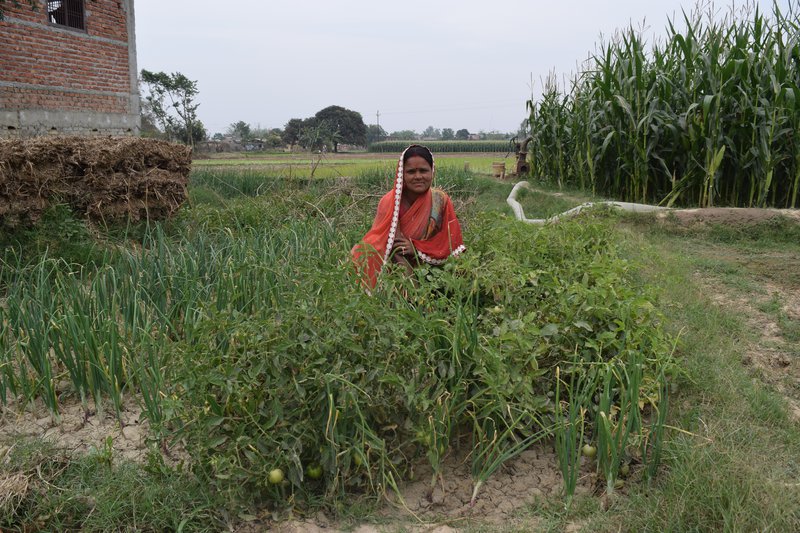
Otherwise, they had to bring it back. Nirmala Devi Yadav, a member of the women's group in Dharmapur ward 6 of Subarna Rural Municipality, highlighted that the market chain, along with VST graduation, has provided them with new opportunities.
She explained that in the past, their production was limited and they lacked knowledge and skills regarding modern off-season high-value vegetables and the market to sell their products. Traders used to visit their villages only when they could sell the vegetables at a high price in the market, but they would purchase from them at a significantly lower price, much below the market value. However, the situation has now changed. With access to the market chain, vendors pay the prices they demand.
They no longer have to individually negotiate or personally take their products to the market, where pricing depends on bargaining or their need for money. Currently, they are discussing and planning to establish a nearby collection center for their vegetables.
VST Training
VST has played a crucial role in boosting production in Bhojpur and Bara. Previously, the majority of farmers in these regions could only sell a small portion of their crops and vegetables due to a lack of knowledge and technical skills. However, a study by the Samriddhi Project found that less than two percent of farmers were able to grow off-season products, and the prices of their goods were uncertain.
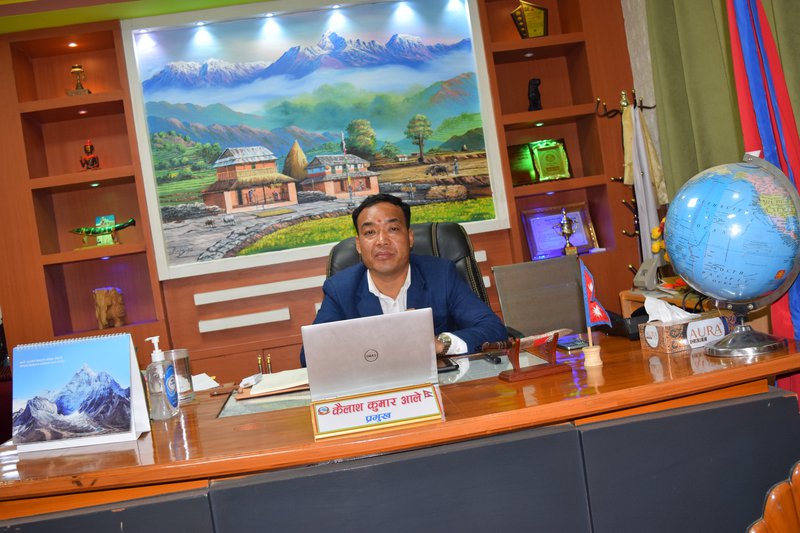
The introduction of vocational skills has enabled small landholding farmers to participate in commercial production. They have realized that adopting simple techniques can significantly increase their output.
Subedi and Yadav highlighted that their previous lack of skills in selecting suitable climate, location, and vegetable species, as well as their limited knowledge of technologies like disease and insect control, irrigation, fertilizer use, and timing of seed sowing and seedling planting, had hampered their production. Now, they can maximize their time and yield more on smaller plots of land.
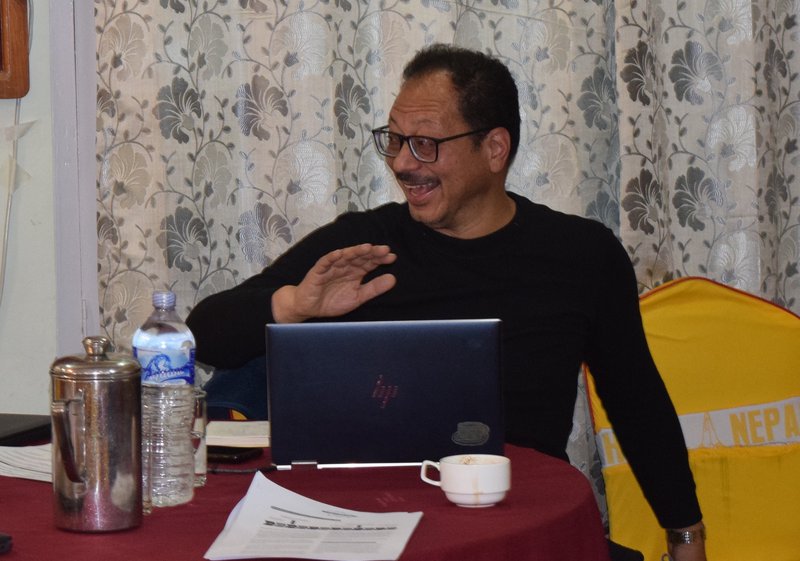
Saroj Prasad Guragain, the Project Manager of Samriddhi, emphasized the importance of modernizing the agricultural sector by providing farmers with skills and linking them to market chains through local government initiatives, especially since over 70 percent of the population still depends on agriculture. The Samriddhi project has successfully reached over 60,000 farmers, offering them market connections and valuable skills to enhance their livelihoods.
Subedi’s Success
Subedi, a native of Bhojpur, and Yadav, from Bara, have both successfully completed vocational training in offseason vegetable farming. They are part of a select group of individuals who are enthusiastic about imparting their newfound knowledge to their fellow farmers and the broader community. Moreover, there are many others who are also eager to share their own experiences.
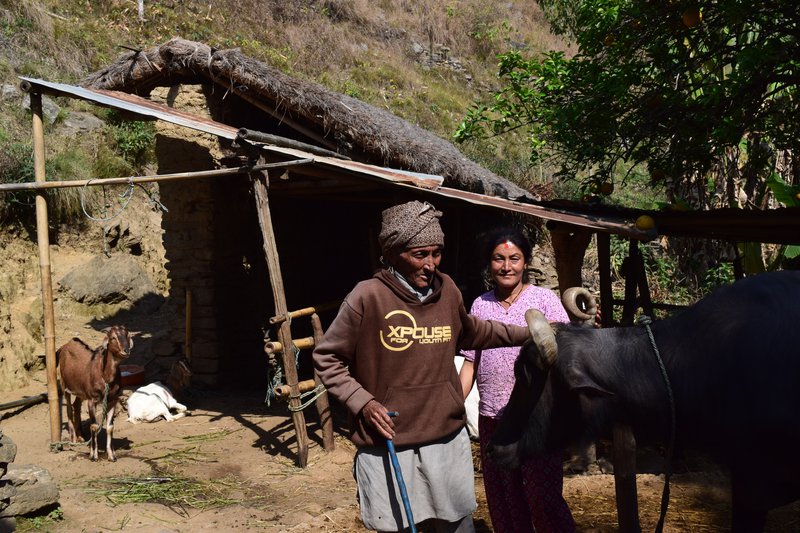
Kailash Kumar Ale, the Mayor of Bhojpur Municipality, has expressed his contentment with the achievements made during his initial term. He has recognized the valuable partnership with the Samriddhi team, which has significantly contributed to the municipality's development. Presently, endeavors are underway to establish Bhojpur as a hub for off-season vegetable cultivation and self-sufficiency in dairy products. The mayor has also emphasized the positive outcomes of result-oriented investments within the project and has conveyed the municipality's intention to replicate this strategy in future initiatives.
Subedi and Yadav firmly believe that through sharing their insights and expertise, they can improve farming techniques and facilitate the exchange of valuable knowledge. Even farmers outside their group have begun visiting their farms to learn from their experiences, indicating a growing interest in adopting these innovative methods. The trainees are thrilled to share their knowledge and actively contribute to the agricultural pursuits of the local community.
Dr. Prabin Manandhar, the country director of Helvetas-Nepal, has expressed his contentment with the positive impact of the organization's endeavors in enhancing the livelihoods of farmers. Throughout the previous two years, the project team has diligently worked towards achieving their objectives, particularly in the realm of generating decent employment opportunities.
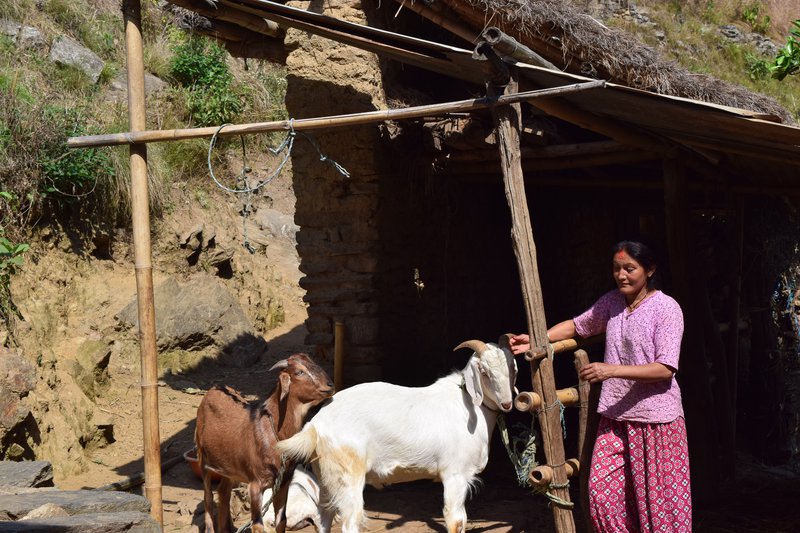
This aspect of the Samriddhi project has significantly contributed to the overarching goals. The project, which is supported by the IFAD in partnership with the Government of Nepal Ministry of Industry, Commerce and Supplies, has highlighted the significance of vocational skills in rural agriculture. Specifically, it has played a crucial role in uplifting the living standards of impoverished and marginalized communities.
By providing vocational training, farmers such as Subedi and Yadav have gained valuable insights into modern farming techniques, agri-processing, and entrepreneurship, leading to enhanced productivity and income. The advancements achieved in the past two years can be credited to the collective efforts of the entire team and collaborations with local authorities, including the Municipality and Rural Municipalities of Koshi, Madhesh, and Bagmati Provinces.
The technical manpower gap has been successfully bridged by the Samriddhi Project, empowering farmers to tackle challenges and contribute to sectoral development. Sandip Poudel, the Team Leader of Helvetas-Nepal, highlighted that in addition to imparting necessary skills, Samriddhi has also established robust marketing channels and collective bargaining platforms.
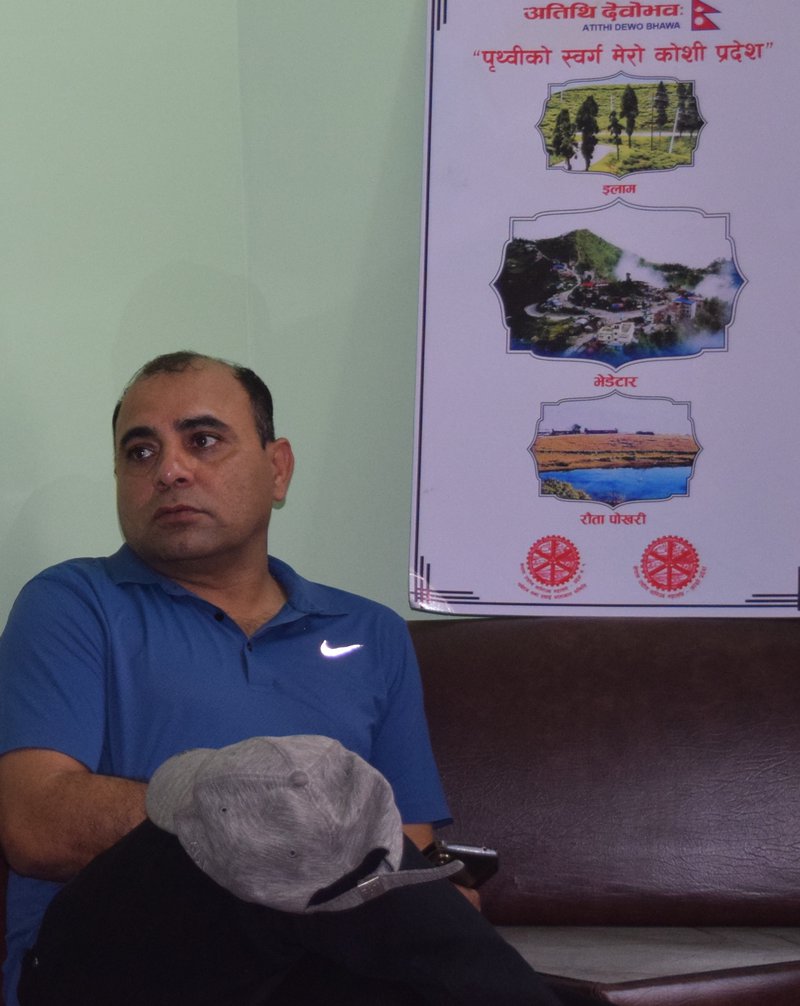
These initiatives ensure fair prices for farmers, reduce reliance on middlemen, and promote transparency and efficiency in agricultural trade. Embracing vocational skills has proven to be instrumental in fostering a thriving subsistence-based agricultural sector, leading to prosperity for farmers and sustainable rural development in Nepal.
As the project nears the end of its current phase, Samriddhi is actively addressing wage labor obstacles and widespread migration from rural to urban areas and overseas. Operating in 16 districts across Koshi, Madhesh, and Bagmati Province, IFAD and the MICS have positively impacted over 200,000 beneficiaries through financial education programs reaching around 300,000 individuals.

Keshab Poudel
Poudel is the editor of New Spotlight Magazine.
- HELVETAS NEPAL’S RIVERBED FARMING: Shift From Overseas To Local Farming
- Jul 26, 2024
- POLITICAL SCENARIO : K.P. Sharma Oli's Resurgence
- Jul 21, 2024
- UNDP/MinErgy: An Inventive Approach To Clean Brick Kiln
- Jul 19, 2024
- HELVETAS NEPAL: Nutrition Through Riverbed Farming
- Jul 18, 2024
- NOU Opens To All: Dr. Shilu Manandhar Bajracharya, Vice Chancellor
- Jul 15, 2024






